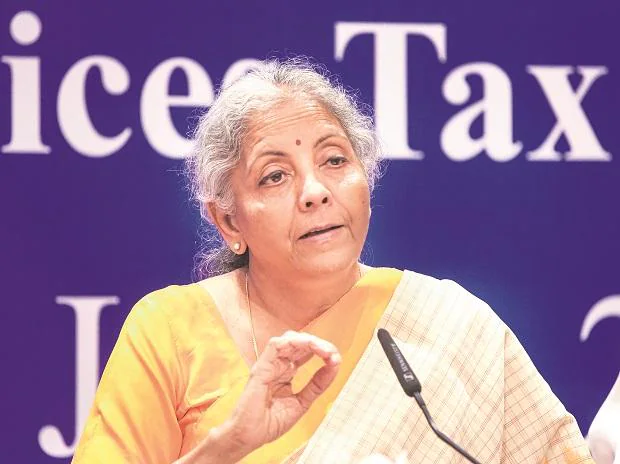[ad_1]
Indian banks have to be ready to meet the credit demand in the economy, which is expected to further pick up in the wake of the festive season and immediately after it as people are willing to spend money and businesses are willing to expand capacity and make additional investments, Finance Minister Nirmala Sitharaman said in her address to bank chief executives during the Annual General Meeting of Indian Bank’s Association.
“This year, during the festive season and immediately after the festive season there will be a lot of interest. There is an indication that people are willing to spend money, travel, businesses want to make additional investments, and expand capacities,” the finance minister said.
“If these things have to materialize, it has to be through you. You will have to keep yourself available and ready to ensure that the credit requirements are met on time without any compromise on diligence,” she added.
As per latest data, credit growth of commercial banks is at a near nine-year high of 15.5 per cent year-on-year for the week ended August 26. This is the highest since November 1, 2013, when it was 16.1 per cent. Despite rising interest rates, credit growth in the system has remained robust and broad based, touching 15 per cent for two consecutive fortnights.
RBI’s latest sectoral deployment of credit for July 2022 pointed out that not only is the retail segment seeing handsome growth of almost 19 per cent, supported by both secured and unsecured loans, credit to industry also saw the highest growth since 2014, due to increased demand for working capital in an inflationary environment.
Also, Indian corporates have now turned towards banks for their funding requirements given bond yields have moved up sharply as compared to lending rates of banks. Among industries, loans to micro and small industries grew by 28.3 per cent YoY; medium industries saw 36.8 YoY growth; and large industries saw 5.2 per cent growth.
The finance minister said Indian banks have to plan for the Amrit Kaal. And for that, they have to become digitally savvy, especially the public sector ones. Banks have to use web3, artificial intelligence, data analysis, deep-dive into data to detect fraud, have early warning signs, and for other purposes. Having said that, banks also need to keep in mind their systems are well protected against any kind of cyber frauds.
“Ensure that you have enough cyber protection and periodic drills to see that there are no loopholes that you have left without attending to,” Sitharaman said.
She stressed on the fact that public sector banks have proven themselves to be in a good shape as they were able to raise capital from the market in the wake of the government not doing any capital infusion. To add to their strength, law enforcement agencies have now ensured that money that was locked up in accounts that were declared as frauds is going back to the banks.
We will ensure that no fraudulent account will be left without being taken to the court and the money will be given back to the banks as they are the custodians of that money, said the finance minister.
Commenting on the importance of bank employees speaking the local language, Sitharaman stressed that banks cannot afford to have staff who do not speak the local language, and who demand from citizens that they speak in a particular language. “You’re there for doing business, you’re not there to cultivate value systems for the citizens. Please review the kind of people who are getting posted in branch levels,” she said.
“If you have a problem of mixing and matching staff who can speak a local language and you have somebody in that region who can’t speak, keep him at the back door. Your recruitments will now have to have a lot more sensible ways of recruiting people,” she added.
She also highlighted that the regional rural banks needed to be given more attention by their sponsor banks as these banks need help with digitisation, and upgradation of their systems. “They need assistance to get their accounts onto digital platforms. Account Aggregators have to go to them. The government has created an agricultural infrastructure fund and we need that to have a better reach through the RRBs,” she said.
Speaking at the same event, Sanjay Malhotra, DFS Secretary, said most major private sector banks and all public sector banks have onboarded themselves on the account aggregator (AA) framework. He asked the IBA to encourage the regional rural banks to join the AA framework. After the public sector banks, work is on to get the insurance companies to join the ecosystem.
While the public sector banks have played a huge role in financial inclusion schemes, the private banks have been lagging their public sector peers in this regard. Malhotra urged the private sector banks to focus on financial inclusion a bit more.
He said the government plans to survey and rate banks on customer service because banks need to pay adequate attention to how they serve their customers.
[ad_2]
Source link



